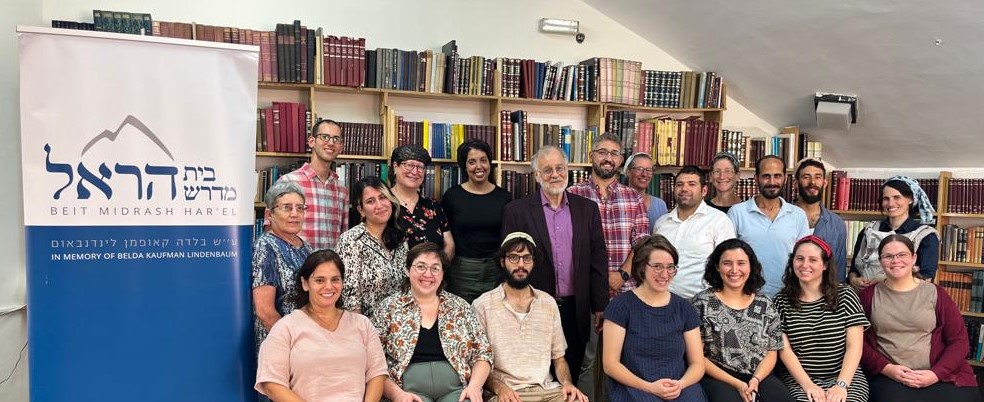by Ilana Kurshan
My three-year-old son goes through phases with books; when he is obsessed with a particular title, he insists we read it over and over, night after night. These days his favorite book is Engineer Ari and the Rosh Hashanah Train Ride, in which the engineer who has been chosen to drive the first train from Jaffa to Jerusalem in 1892 regrets offending his colleagues and realizes he must apologize to them before the start of the Jewish new year. To the adult reader, the book puzzlingly resists classification – is it a work of historical fiction depicting the scenic railway? A holiday story about Rosh Hashanah, with apples and honey handed to Engineer Ari as his train chugs along? Or a book meant to instill a familiarity with and love for Israel, with its stereotypical images of the Dome of the Rock, the Yemin Moshe windmill, and the Jaffa orange groves?
The answer, in fact, is all of the above – the book was published through PJ Library, an international program to distribute free Jewish children’s books to families around the world. My Israeli children received the book as a gift from their American cousins, with whom we frequently exchange picture books. Over the years, I have been struck by the differences between the Jewish books published by PJ Library in the United States, and their Israeli counterparts. The books we read with our children reflect the values we wish to transmit; in comparing the books my children and my siblings’ children read, I have come to a deeper understanding of what divides and what unites Israeli and diaspora Judaism.
PJ Library, founded in 2005, is a program of the Harold Grinspoon Foundation, a Jewish nonprofit organization. The program sends out over 200,000 books a year to Jewish families and to families “with Judaism as part of their lives” in an effort to promote Jewish literacy and engagement. The books are selected by a committee that works with authors, editors, and publishers to identify titles that reflect aspects of the Jewish experience in the hope of prompting family discussions about Jewish topics and Jewish choices. The books, aimed at children ages 0-8, are intended to speak to Jews from a variety of background, knowledge, and religious observance.
The Israeli counterpart of PJ Library, known as Sifriyat Pijama (pajamas library) was founded in 2009 as a partnership with Israel’s Ministry of Education. Unlike the American program, in which books are sent directly to children’s homes after parents sign up, in Israel the books are distributed through the schools and preschools, and students are enrolled automatically. In Israel, the school system is divided into five major sectors: Haredi, Arab, national, national-religious, and special education; Sifriyat Pijama operates in the latter three sectors, reaching over 400,000 Israeli children in 2020 alone2. (There is also an Arabic PJ Library program, Maktabat al-Fanoos, featuring a different set of books.) The books are selected by a committee that includes editors and educators as well as government officials in the Ministry of Education, with the aim of promoting literacy, a love of books, and an engagement with Jewish values.
Although Sifriyat Pijama was founded as a sister program to the original PJ Library program, the books sent to American and Israeli children are strikingly different, as my siblings and I have observed. The books selected by PJ Library in North America focus primarily on Jewish holidays and aspects of Jewish religious observance. There are books about saying Havdalah on Saturday night, apologizing before Yom Kippur, and hunting for the Afikoman on Pesach. Several of the books incorporate objects and characters already beloved to young children, using them to tell a story about living Jewishly. Be Happy, It’s Purim features Sesame Street muppets spinning noisemakers and eating hamantaschen; Dinosaur on Shabbat is about an overly-eager and excited dinosaur who wreaks havoc when he joins a young boy and his family in preparing for Shabbat. These books invite the young reader in to the world of Jewish observance – what kid wouldn’t follow a brontosaurus anywhere, to synagogue, the Sukkah, or the Shabbat table?
Other PJ Library books focus on cultivating a love for Jewish practice and for Israel, though Israel is often depicted symbolically and nostalgically, as in Everybody Says Shalom, a whirlwind tour of famous sites in Israel. “It’s not true,” my Israeli daughter tells me. “Everyone in Israel doesn’t say Shalom. Most people say hi.” She is equally skeptical of Dance the Hora, Isadora, in which a girl introduces “Hava Nagila” to her ballet class. The characters in the American PJ Library books make a point of incorporating aspects of Jewish culture and observance into their otherwise assimilated American lives – they bake challah with Grandma on Friday and say Shema before bedtime. Their Judaism is not an integral part of the society in which they live, but rather what sets them apart. These stories encourage Jewish children to embrace and take pride in their Jewish ethnic identities.
In contrast, the majority of Sifriyat Pijama books are not explicitly Jewish, and the Israel they depict is not Masada, the Western Wall, or the Jaffa train station, but rather the playground down the block and the corner kiosk. Dandelion Snow is about a group of preschool children who have to find a solution when the flowery field where they love to play becomes a construction site; I Like to Search is about a boy who looks for various lost items—a ball, a puppy, a frog—and each time finds another. Most of these books are universal stories, but each concludes with a supplemental page drawing out what the program committee deems to be the Jewish themes of the book. Even these themes, though, are questionably Jewish – the Jewish hook for I Like to Search is a verse from one of the most universalist biblical books, Proverbs: “A wise heart with acquire knowledge.” It is not necessarily a Jewish heart that is acquiring knowledge, nor is there any reason to think that the knowledge being acquired is specifically Jewish in nature.
The Sifriyat Pijama books are so universal in theme that some are even translated from English, though not from the PJ Library series. Rather, the Sifriyat Pijama titles in translation are written by famous English-language authors and illustrators who were presumably taken aback to discover that an Israeli Jewish literary-educational program was interested in republishing their books. Sifriyat Pijama’s Hebrew translation of Philip C. Stead’s Bear Has a Story to Tell, about a bear who is frustrated that none of the other animals want to listen to him telling a story, is appended with a verse from another universalist work of biblical wisdom literature, Ecclesiastes: “To everything there is a season and a time for every purpose under heaven.” The Sifriyat Pijama books, unlike their American counterparts, are not about embracing one’s Jewish identity – they are simply quality children’s books aimed at promoting literacy. They are printed in large, clear letters with vocalization marks so as to make it easier for kids to read to themselves – each of my kids learned to read in Hebrew by sounding out Sifriyat Pijama books. One might say that Sifriyat Pijama books are Jewish books only insofar as they encourage a love of reading, and we are the people of the book.
When my American siblings encounter the Sifriyat Pijama books we bring them from Israel, they are puzzled; how are these Jewish books? A book about dwarves hiding under a mushroom, or a boy cleaning his room, or a ladybug taking refuge from the rain? I try to explain to them that in much of Israel, Jewish culture is all-pervasive. Even going to the supermarket is a Jewish experience – there is a mezuzah on the door, the food is all kosher, and the special foods for the next upcoming holiday are featured in front. Even children enrolled in the national (i.e. non-religious) school system learn Chanukah songs, dress up for Purim, and build bonfires on Lag Ba-Omer, because Jewish culture is the national culture. And so a Sifriyat Pijama book need not be about a Jewish holiday or a Bible story in order to be a Jewish book; it is a Jewish book by virtue of the fact that it is written in the language of the Bible, and published in the land where much of the Bible is set.
My Israeli children, in turn, have a hard time relating to the PJ Library books they receive from their American cousins. In spite of their fluent English, I have to translate many of the Yiddish terms that are part of the lexicon of American Jews –my kids have never heard of a dreidl or a latke, and they also need me to explain that Elijah the Prophet is the figure they know of as Eliyahu HaNavi. The Jewish content in these books seems tacked on, out of place – as in the story about the boy who gets hiccups on Shabbat. I recently read them Hannah’s Way, about a Jewish girl in Depression-era Minnesota who has to explain to her non-Jewish classmates why she can’t get into a car on Shabbat. My kids have never heard of Minnesota or the Great Depression, and they cannot imagine being the only Jewish child in school – their schools, and all their friends’ schools, are entirely Jewish, with over a hundred Jewish kids per grade. For my kids, Judaism is not what sets them apart from others around them, nor is it a matter of ethnic pride – it is, rather, what they have in common with all their friends, regardless of cultural and socioeconomic differences. My children have classmates whose parents were born in France and Russia and Ethiopia and Iran; they have classmates whose parents are policewomen, chefs, doctors, and municipal workers. But they are all Jewish.
The books that Jewish parents read with their children in Israel and the diaspora are a reminder of the varieties of Jewish religious experience. Unlike the American PJ Library books, which focus on Jewish particularism, the Israeli Sifriyat Pijama books highlight the values that we Jews have in common with people the world over. Perhaps it is useful to remember that although PJ Library has been sending out books to Jewish children for over two decades, the first Jewish book that was ever sent out was given to the entire Jewish people, standing together as one at the foot of Mount Sinai. That book had no dinosaurs and no muppets, no puppies and no trains – and yet everyone stood rapt and listened.
Ilana Kurshan is a current student at Beit Midrash Har’el, a graduate of Harvard University (BA, summa cum laude, History of Science ) and Cambridge University (M.Phil, English literature). She is the author of If All the Seas Were Ink, and winner of the Sami Rohr Prize for Jewish Literature.
(Illustrative photo from woodleywonderworks @ flickr)


